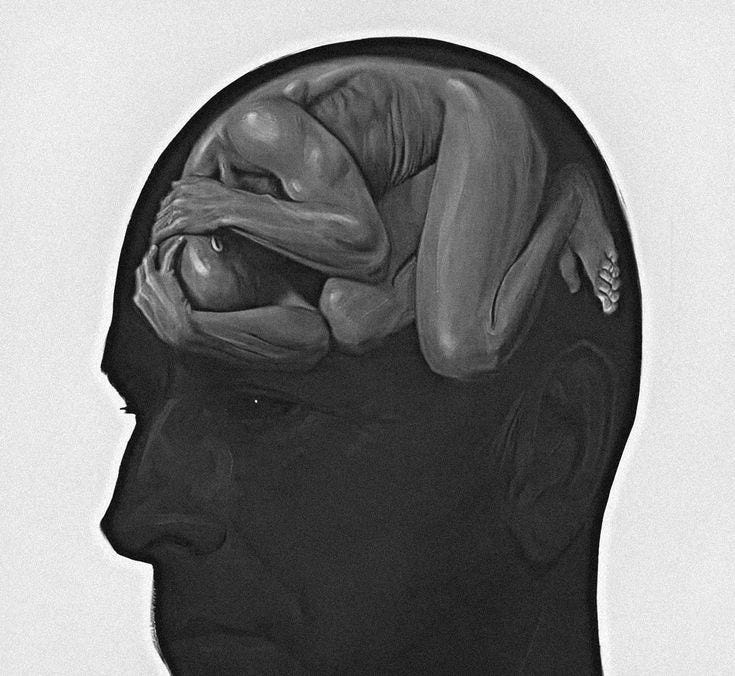Mind-Body Evolution Gap
Will the growing gap between our rapidly evolving minds (like software updates) and unchanging physical form (like static hardware) limit us in the future?
Dear reader,
The other day, while updating my devices, I had an interesting thought about human evolution. You know that feeling when your phone gets new capabilities through a simple software update, while the hardware stays the same? It got me thinking about how similar this is to our own evolutionary journey.
Here's what fascinates me: while our physical bodies have remained relatively unchanged for thousands of years — or I should rather say the morphological changes have slowed down — our minds have been continuously upgrading themselves. Think about it: since the agricultural revolution about 12,000 years ago, our bodies have undergone only subtle changes. But our brains, especially the neocortex, which is super helpful for our cognitive abilities? They're like devices getting constant software updates, adapting and evolving at a huge pace!
It's as if natural selection is acting more on brain function and cognitive adaptability rather than major physical changes, which was reverse earlier. When we think about why, it's clearer too — it's prioritizing more of evolution, adapting to new social, technological, and intellectual challenges.
Recently I've read about how this evolutionary change makes us different from other creatures. I've learned that most living creatures are like devices running on a fixed operating system, where they are heavily dependent on their built-in genetic instructions, which means their survival strategies and behaviors are hardwired into their DNA. But humans? We are different. While we still have our basic genetic programming, our brains are like powerful computers that can download and run new apps, with which we can learn, adapt, and create new behaviors quickly.
While we share basic genetic programming with other species, our brains possess an extraordinary capacity for learning, adaptation, and innovation. Think of it as having a highly sophisticated operating system that can be continuously upgraded. Our babies need more care and development compared to other animals, but this investment pays off big time, giving us a huge advantage in survival. In our fast-evolving world, we can't afford to wait for traditional genetic evolution — that would take millions of years! Instead, we adapt through learning and cultural development.
The past century perfectly displays this! Just look at how quickly we have evolved our collective intelligence in the last 100 years, compared to the minimal changes in our physical form! We are still running on the same "hardware" as our ancestors from thousands of years ago, yet our "software" (our knowledge and understanding) has grown with the advancement of technology and accumulated wisdom.
We are now living in a unique moment in human evolution, where our mental capabilities are growing faster than ever before, outpacing our biological constraints.
But here's the thought that keeps me up at night: Are we approaching a crossroads? Will our bodies — our ancient "hardware" — eventually become a bottleneck for what our rapidly evolving minds can achieve? Or perhaps technology will help us bridge this gap, finding ways to enhance both our physical and mental capabilities?
A Note to You
I'd love to hear your thoughts on this fascinating paradox. How do you see this mind-body evolution gap playing out in our future?
Share your perspectives in the comments below or reply to the email.


